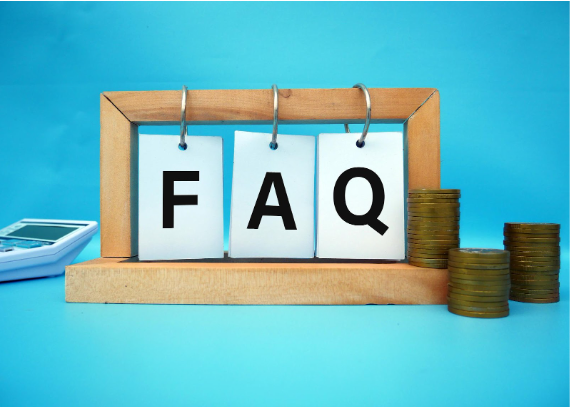
Top 10 Frequently Asked Questions About Unsecured Debt in Canada
Question 1: What is Unsecured Debt?
Debt without collateral is referred to as unsecured debt. This implies that the lender does not require any kind of security, such as assets or property, in exchange for your loan. Credit card debt, overdrafts, payday loans, personal loans, lines of credit, and other loan types are common examples of unsecured debt.
Question 2: How Does Unsecured Debt Differ from Secured Debt?
The main difference between secured and unsecured debt is whether or not collateral is included. Collateral is required for secured debt, which means the borrower must put up an asset as security for the loan—for example, a house for a mortgage or a car for an auto loan. The lender may take possession of the asset to recoup their losses if the borrower defaults on the secured loan.
However, unsecured debt is not secured by any asset or property. The borrower’s creditworthiness and repayment commitment are the only things the lender depends on. For this reason, interest rates on unsecured debt tend to be higher than those on secured debt.
Question 3: What Happens if I Can’t Pay My Unsecured Debt?
Late penalties and extra interest charges are likely to occur from missing payments. Your creditor may approach you to collect the money and provide options such as a payment plan.
Should you fail to make payments, your debt can be turned over to a collection agency. The agency could get in touch with you again and again. Also, since credit bureaus get reports on late payments, your credit score will decrease.
Question 4: How is Unsecured Debt Collected in Canada?

In Canada, unsecured debt is usually collected through a formalized procedure. The lender will make an initial effort to get in touch with you and may present options such as payment plans. If these attempts are unsuccessful, a collection agency is often given the task of collecting the debt.
A collection agency will get in touch with you to get the payment. Collection agencies can speak with you over the phone, through mail, and in certain situations, in person for repayment.
Should the collection agency’s attempts be unsuccessful, the lender could take legal action. This might entail bringing legal action against you in an attempt to get a judgment that could result in asset seizures or wage garnishment.
Question 5: What Are My Rights Regarding Unsecured Debt Collection?
When it comes to the collection of unsecured debts, you have certain rights. These rights are intended to shield you from deceptive actions taken by debt collectors or creditors. The rights include:
- The right to information: Collectors are not permitted to employ dishonest or misleading tactics, and they must openly identify themselves.
- Limitations on Communication: There are stringent guidelines on the frequency and timing of debt collector communications. They cannot contact you on holidays, before 7 a.m. or after 9 p.m. on weekdays and Saturdays, or before 1 p.m. and after 5 p.m. on Sundays.
- No harassment: It is forbidden for collectors to use harsh language, make threats of violence, or use undue, excessive, or unreasonable pressure.
- Privacy: Unless you give permission, debt collectors are not allowed to discuss your debt with anybody else.
- Debt Dispute: You are entitled to dispute the debt if you think it isn’t really yours or the amount is incorrect.
Question 6: Can Unsecured Debt Be Reduced?
In Canada, it is possible to reduce the amount to be paid on your unsecured debt. To complete this procedure, your debt expert will make an arrangement to either modify your payment terms or repay a portion of the amount. Bankruptcy or consumer proposals are the two legal ways to settle debt in Canada.
Question 7: Can Unsecured Debt Be Transferred to Someone Else?
Unsecured debt typically belongs to the individual who accrued it and cannot be assigned to another party unless under specific circumstances. For instance, the co-signer on the loan may be held accountable for the debt if you have a co-signed loan or joint account. When two people co-sign, they share equal liability for the repayment.
Question 8: What is the Average Unsecured Debt Load for Canadians?
Although Canadians’ average amount of unsecured debt fluctuates, current data indicate that it has been rising. Based on statistical data, the typical household in Canada bears thousands of dollars in unsecured debt, with credit card debt accounting for a substantial portion of this amount. These figures demonstrate how credit is being used more and more, as well as how crucial good debt management is.
Question 9: What is the Statute of Limitations on Unsecured Debt in Canada?
The period during which a creditor may lawfully file a lawsuit against you to collect the debt is known as the statute of limitations. The length of this time varies by province and usually lasts between two and six years. The creditor cannot pursue legal action to compel repayment beyond this point, even though the debt is still being owed.
Question 10: Where Can I Get Help with Unsecured Debt?

If you’re having trouble paying off unsecured debt, EmpireOne Credit is a dependable option. We specialize in helping individuals manage and minimize their unsecured debt. We offer tailored solutions based on your particular financial circumstances. Your debt can be reduced by up to 80%, and interest will stop immediately. Call us at (416) 900-2324 to schedule a free consultation with one of our debt experts. Being debt-free feels good!





